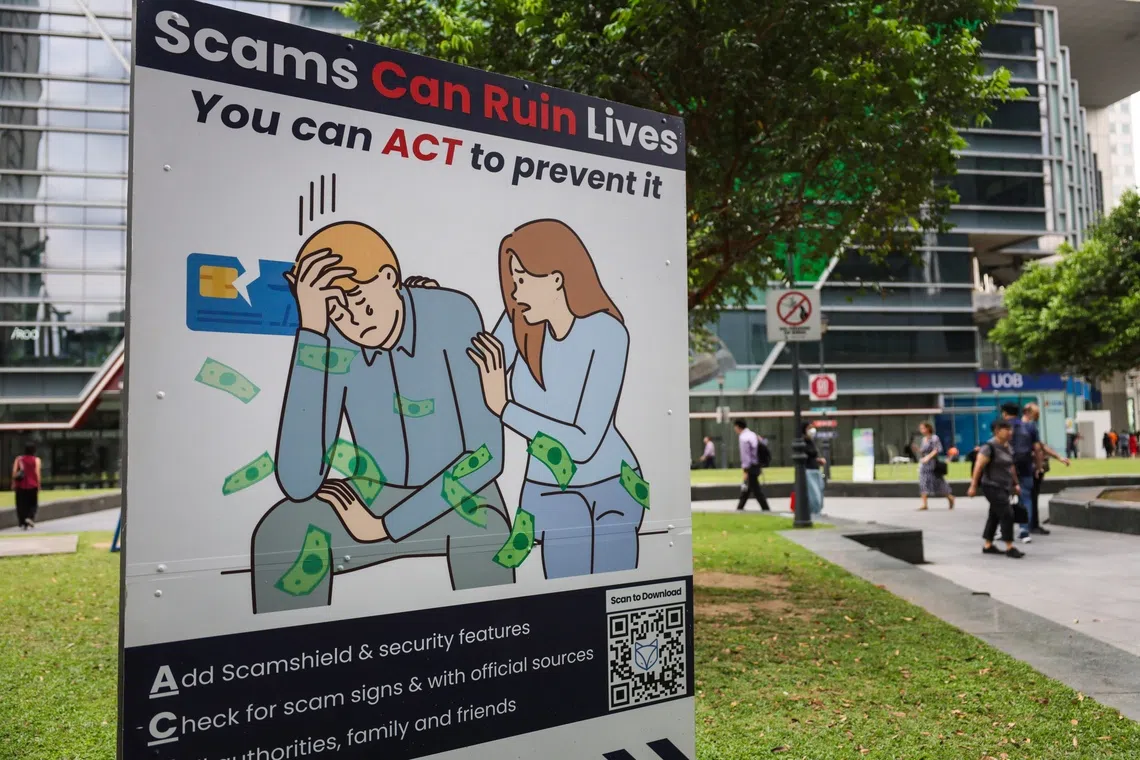Govt agencies to use common caller ID for public calls in bid to prevent impersonation scams
Sign up now: Get ST's newsletters delivered to your inbox

The authorities are also engaging online messaging platforms to implement measures that prevents ‘gov.sg’ and other public agency names from being spoofed.
ST PHOTO: GIN TAY
Follow topic:
Follow our live coverage here.
SINGAPORE - Government agencies are planning to start using a common caller ID for calls made to the public, to tackle the scourge of scammers posing as government officials.
This will be done in a similar approach to how agencies have been using the gov.sg sender ID
His written reply was in response to a question in Parliament from Mr Vikram Nair on whether the Government is considering additional measures to combat the rise of government official impersonation scams and phishing scams.
Government official impersonation scams and phishing are of serious concern, and account for 34 per cent of all scam losses in the first half of 2025, said Mr Shanmugam.
Government agencies started using the common gov.sg sender ID to send messages so that recipients can easily identify legitimate government messages, said Mr Shanmugam, adding that the authorities are planning a similar approach for government calls.
“As an interim step, we intend to make outgoing calls to members of the public from commonly impersonated agencies like the Singapore Police Force, to have only one common caller ID, regardless from which phone the officers are making the call,” said Mr Shanmugam, adding that details will be announced in due course.
This is the latest of measures that have been rolled out by the Government to protect the public against impersonation scams.
Earlier in September, the Singapore police issued Meta its first online harm directive
The authorities are also engaging online messaging platforms to implement measures that prevent “gov.sg” and other public agency names from being spoofed, said Mr Shanmugam. There has also been a rise in phishing scams, as a common tactic employed by scammers now is phishing for banking or credit card credentials via fake advertisements on social media accounts, he added.
To address this, online service providers designated under Ocha are required by the police to implement measures such as user verification, and to proactively detect and disrupt suspected scam activities.
The Monetary Authority of Singapore has also worked with the major retail banks to phase out the use of one-time passwords sent via text messages to authenticate transactions for digital token users and implement additional verification for provisioning of cards into mobile wallets
“They are also working to roll out a Fast IDentity Online compliant hardware token to better safeguard high-value internet banking transfers,” said Mr Shanmugam. “This will prevent scammers from being able to use just phished banking credentials to steal the money in the account.”
Despite these measures, he added that a vigilant population is ultimately the best defence. The public is advised to check the authenticity of websites when making payments, and be discerning when receiving any form of communication claiming to be from the Government.


